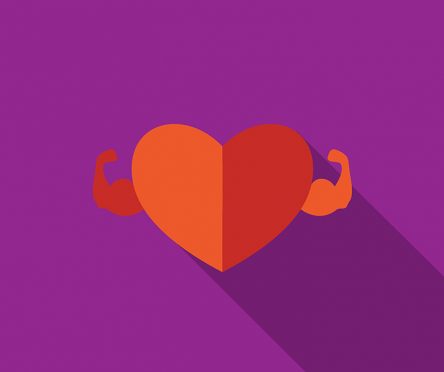Everyone knows the most obvious signs of a struggling heart – chest pain, shortness of breath – but your body has more subtle ways to alert you to cardiac trouble.
When plaque builds up and clogs arteries carrying blood through your body, for example, it might trigger erectile dysfunction or leg pain while walking. Knowing various signs can help you seek help faster to ward off serious trouble.
“Clogged arteries, called atherosclerosis, is concerning. If enough plaque builds up or it’s unstable, it can rupture, cutting off blood flow and leading to heart attack or stroke,” said Dr. Heather Swales, co-director of the Hartford HealthCare Heart & Vascular Institute’s Women’s Heart Health Program.
Plaque, she said, is cholesterol and other substances that cling to the artery’s inner lining. It contributes to the 735,000 heart attacks and 610,000 heart disease deaths each year.
Typical symptoms of clogged arteries include:
- Chest pain that can radiate into the neck, jaw, left arm or back.
- Breathing trouble that can worsen with activity and improve when resting.
- Heart palpitations.
- Unexplained fatigue.
“Some people may not have any symptoms even with risk factors for heart disease, or they may have subtle symptoms,” Dr. Swales said.
Those subtle symptoms can be:
- Erectile dysfunction due to clogged arteries in the pelvis.
- Claudication, or pain in the legs when walking at a certain pace or for a certain length of time.
- Tightness or pain in the jaw. The pain is triggered by signals sent through the jaw, neck and left arm by the vagus nerve.
- Lower back pain. Plaque likes collecting in the lower back where it can limit blood flow to the discs cushioning the vertebrae in the spine, causing pain.
If any sound familiar, Dr. Swales suggested talking to your healthcare provider. The best treatment is to control the most common risk factors. This ranges from stopping smoking to getting blood pressure, cholesterol and blood sugar levels within a healthy range, something that may require medication. Other tips include adding 150 minutes of moderate intensity aerobic exercise every week, eating a heart-healthy diet and maintaining a healthy weight.
Women, in particular, should be keenly aware of atherosclerosis symptoms, although men, overall, are affected more. However, while the incidence of cardiovascular disease in premenopausal women, is very low, Dr. Swales said atherosclerosis rates increase significantly for them every decade after menopause. As a result, almost as many women die each year from heart disease as men.
“Women can have risk factors for heart disease that are unique to women. For example, having diabetes or blood pressure problems during pregnancy or trouble with infertility can increase future risk for heart disease,” she said. “In addition, a history of polycystic ovarian disease and early menopause also increase a woman’s risk.”



